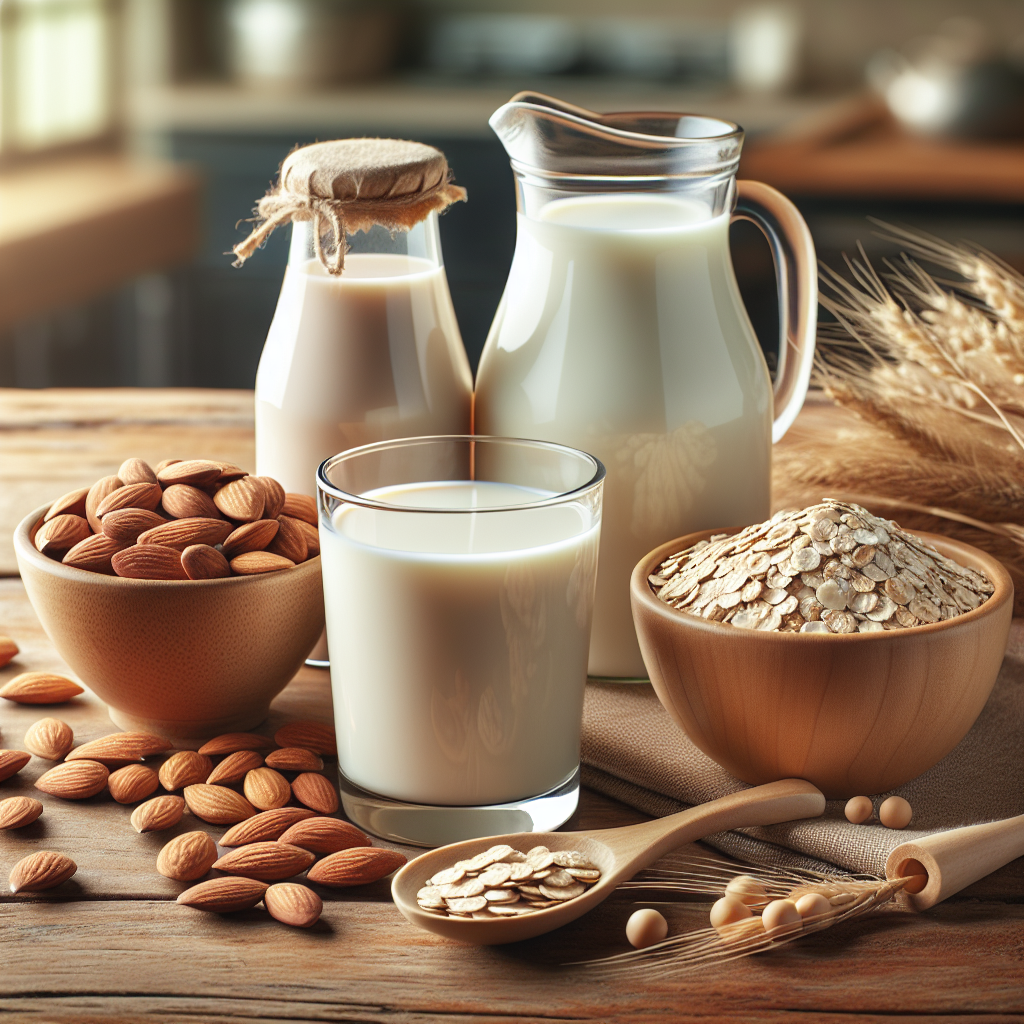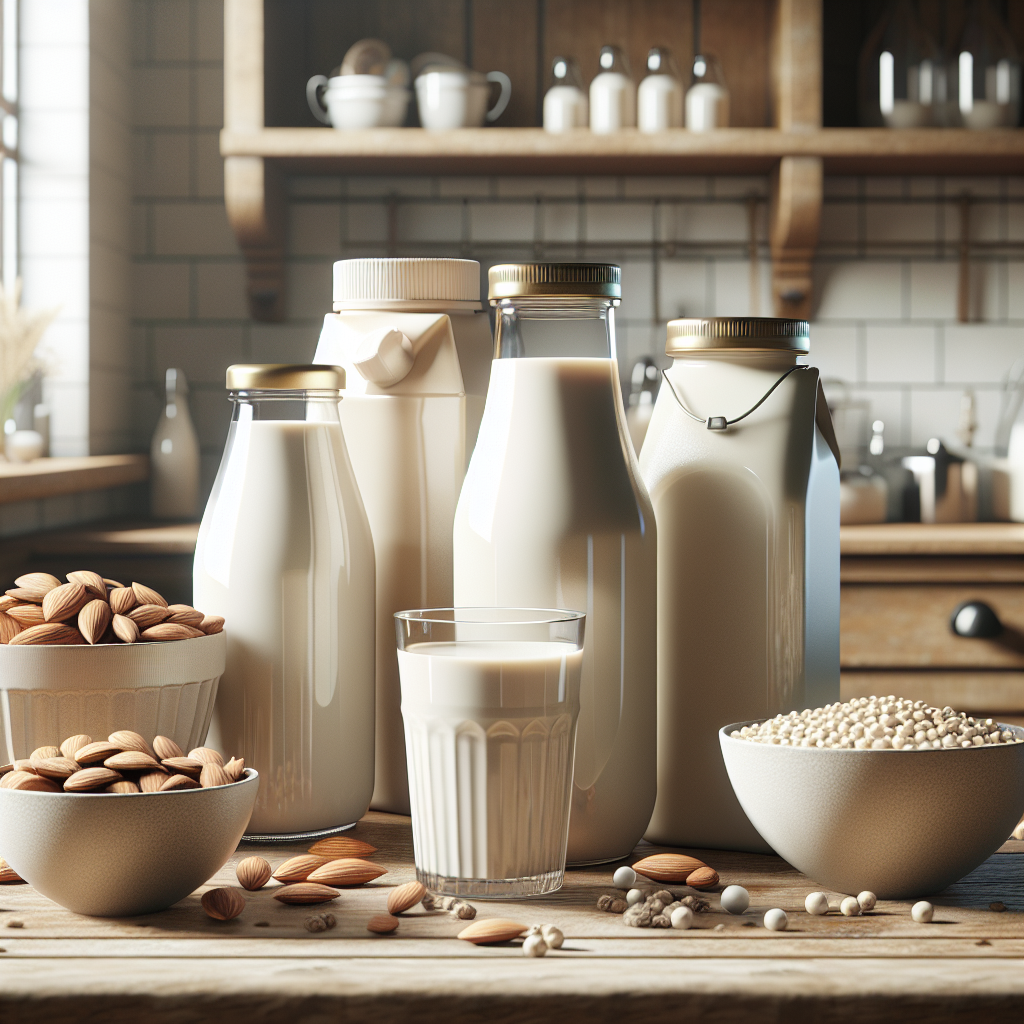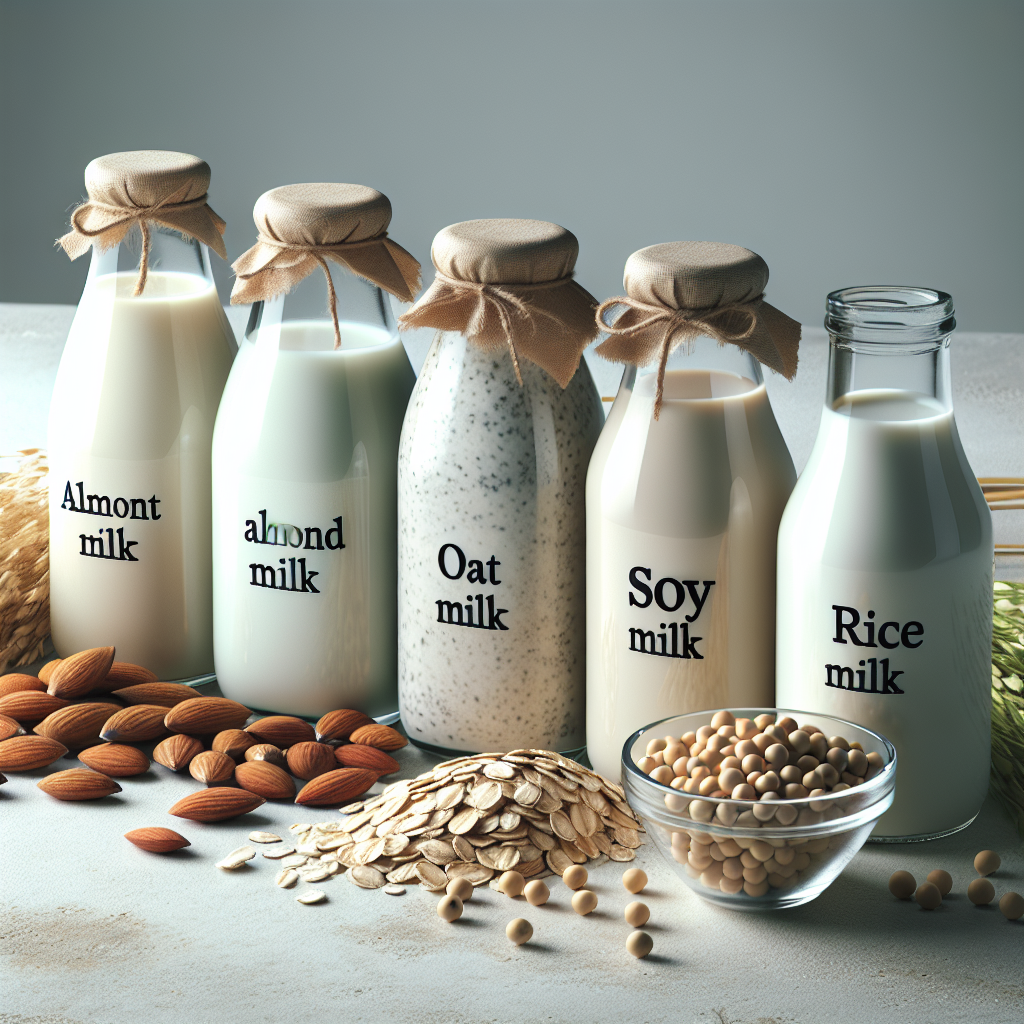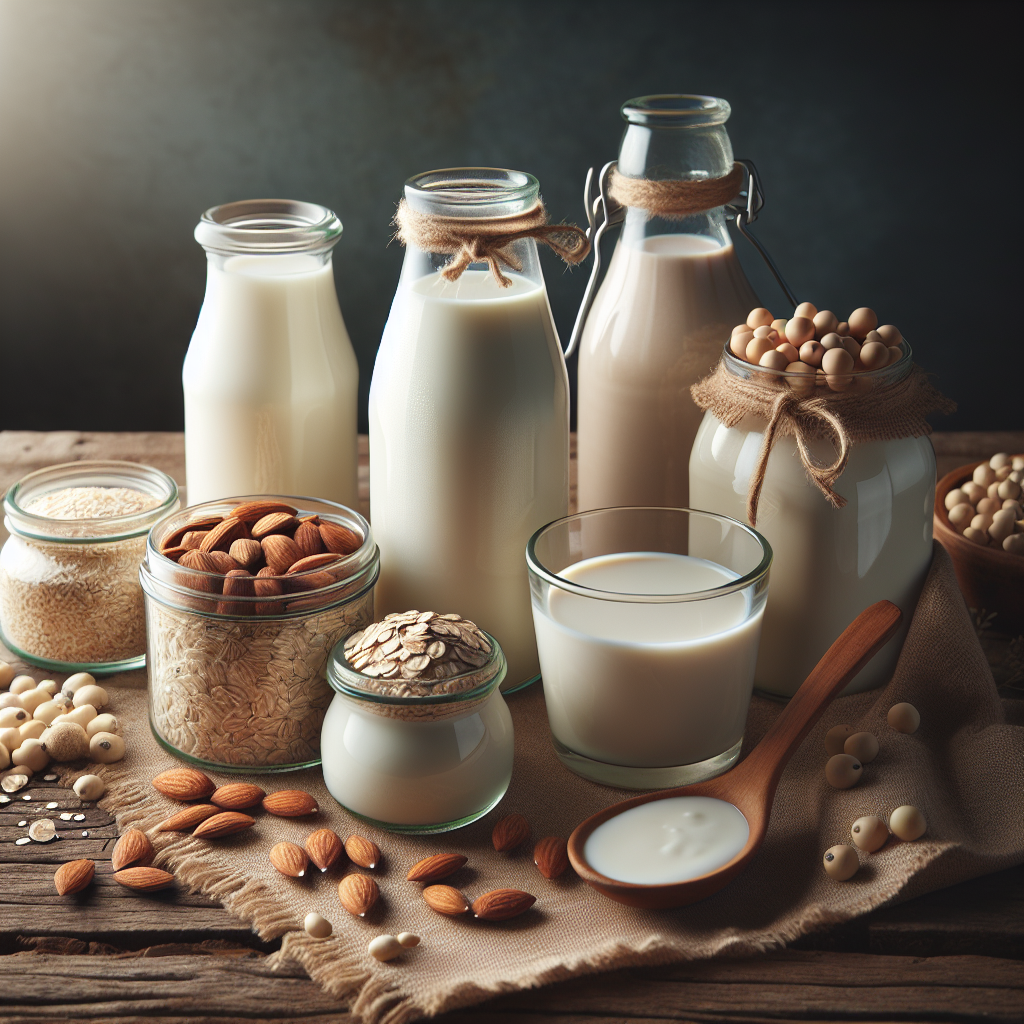In recent years, the demand for milk substitutes has surged, driven by growing awareness of dietary restrictions, health benefits, and environmental sustainability. Traditional dairy milk, once a dietary staple, is increasingly being replaced by a diverse array of alternatives derived from nuts, grains, and seeds. These plant-based options offer a myriad of benefits, including being naturally lactose-free, devoid of additives and preservatives, and customizable to cater to individual taste preferences.
One of the standout advantages of milk substitutes is their potential to cater to those with lactose intolerance or dairy allergies, providing a nutritious alternative without compromising on taste or texture. Additionally, these substitutes often come with a lower environmental footprint compared to traditional dairy farming, making them an eco-friendly choice for the environmentally conscious consumer.
From almond and oat milk to soy and rice milk, the possibilities are virtually endless. Each type of milk substitute brings its own unique flavor profile and nutritional benefits, making it easier than ever to find the perfect match for your dietary needs and culinary preferences. Whether you're blending them into smoothies, pouring them over cereal, or using them in your favorite recipes, milk substitutes offer a versatile and healthy alternative to dairy milk.
Ready to make the switch to a healthier lifestyle? Get yours today! Experience the convenience and benefits of creating fresh, customized milk substitutes at home with MilkDepot.com's revolutionary milk-making blender.
Health Benefits of Milk Alternatives

Switching to milk substitutes can offer an array of health benefits that may enhance your overall well-being. One of the primary advantages is that these alternatives are naturally lactose-free, making them an excellent choice for individuals with lactose intolerance or those who experience digestive discomfort from dairy. By opting for plant-based milk, you can enjoy all the creamy goodness without the gastrointestinal issues associated with lactose.
Milk alternatives are also typically lower in calories and saturated fats compared to cow's milk, which can be beneficial for weight management and cardiovascular health. Many varieties, such as almond and coconut milk, contain healthy fats that support brain function and heart health. Additionally, options like oat and soy milk are rich in fiber, aiding in digestion and promoting a healthy gut.
Vitamins and minerals are another area where milk substitutes shine. Many plant-based milks are fortified with essential nutrients such as calcium, vitamin D, and vitamin B12, ensuring that you don't miss out on these crucial elements while avoiding dairy. Some nut milks, like almond milk, are also rich in vitamin E, an antioxidant that supports skin health and boosts the immune system.
Moreover, milk alternatives often contain no additives or preservatives, providing a cleaner, more natural option for your diet. This can help reduce your intake of artificial ingredients and chemicals, contributing to a more holistic and healthy lifestyle.
By incorporating a variety of milk substitutes into your diet, you can enjoy a range of nutritional benefits tailored to your specific health needs and preferences, all while contributing to a more sustainable planet.
Popular Nut-Based Milk Options

Nut-based milk options have surged in popularity, offering delicious and nutritious alternatives to traditional dairy milk. Among the most favored choices are almond milk, cashew milk, and hazelnut milk, each bringing unique flavors and health benefits to the table.
Almond milk is undoubtedly one of the most well-known nut milks. Made from ground almonds and water, it boasts a light, slightly sweet taste that complements both sweet and savory dishes. Almond milk is low in calories and rich in vitamin E, an antioxidant that supports skin health and immune function. It also contains moderate amounts of calcium and vitamin D when fortified.
Cashew milk is another excellent option, characterized by its rich and creamy texture. This milk is made from blending cashews with water, resulting in a smooth and slightly nutty flavor. Cashew milk is often praised for its heart-healthy monounsaturated fats and its ability to provide a creamy consistency without the need for added thickeners. It is a great addition to coffee, smoothies, and baking recipes.
Hazelnut milk offers a distinct, nutty taste that can add a gourmet twist to your beverages and recipes. Hazelnut milk is a good source of healthy fats, vitamin E, and B vitamins. Its unique flavor profile makes it a delightful addition to coffee, hot chocolate, and various desserts.
These nut-based milk options not only provide a range of *flavor profiles* but also cater to various dietary needs and preferences. Whether you're looking for a low-calorie option or a rich, creamy alternative, there's a nut milk to suit your taste. By experimenting with different types, you can discover new ways to enjoy the benefits of plant-based milk in your daily diet.
Grain and Seed-Based Milk Choices

Grain and seed-based milk alternatives are gaining traction as versatile and nutritious options for those looking to diversify their milk substitute choices. Popular varieties include oat milk, rice milk, and hemp milk, each bringing distinct flavors and nutritional profiles to the table.
Oat milk has become a favorite among many due to its creamy texture and naturally sweet flavor. Made from oats and water, it is often fortified with vitamins and minerals such as calcium, vitamin D, and B12. Oat milk is also high in beta-glucans, a type of soluble fiber that can help lower cholesterol levels and support heart health. It's an excellent choice for coffee, cereals, and baking.
Rice milk is another popular choice, known for its mild taste and thin consistency. Made from milled rice and water, it is typically fortified with calcium and vitamins to enhance its nutritional value. Rice milk is naturally sweet and hypoallergenic, making it an ideal option for individuals with multiple food sensitivities or allergies. It works well in smoothies, cereals, and light cooking recipes.
Hemp milk offers a unique, slightly nutty flavor and is packed with nutrition. Made from hemp seeds and water, it is rich in omega-3 and omega-6 fatty acids, which are essential for brain and heart health. Hemp milk also provides a good source of plant-based protein, making it a valuable addition to a vegan or vegetarian diet. Its creamy texture makes it suitable for a variety of uses, from beverages to baked goods.
These grain and seed-based milk options not only cater to different taste preferences but also offer numerous health benefits. By incorporating these alternatives into your diet, you can enjoy a range of flavors and nutritional enhancements that support a healthier lifestyle.
How to Make Milk Substitutes at Home
Making milk substitutes at home is not only a cost-effective option but also allows you to control the ingredients and customize flavors to your liking. With the right tools and a bit of practice, you can easily create fresh, delicious milk alternatives from nuts, grains, and seeds.
The first step is to choose your base. Popular options include almonds, cashews, oats, rice, and hemp seeds. Each base has its own unique flavor and nutritional profile, so pick one that fits your dietary needs and taste preferences.
Here's a basic guide to making your own milk substitute:
- Soak your base: For nuts and seeds, soak them in water for 6-8 hours or overnight. This softens them and makes blending easier. Grains like oats don't need to be soaked for as long, usually just 30 minutes to an hour.
- Blend: Add 1 cup of raw ingredients to the filter basket, along with any flavors or sweetener. Attach the filter basket to the Milk Maker and press Start. In less than a minute you'll be enjoying fresh filtered milk.
- Store: Transfer your homemade milk substitute to a clean, airtight container and refrigerate. It typically lasts for 3-5 days, so make only what you can consume within that time.
Making your own milk substitutes at home is an enjoyable and rewarding experience. It not only ensures that your milk is free from preservatives and additives but also opens up a world of flavor possibilities. Experiment with different ingredients and find the perfect blend that suits your palate and nutritional needs.
Choosing the Best Milk Substitute for You

When it comes to selecting the best milk substitute for your dietary needs and preferences, it's essential to consider several factors: nutritional content, flavor, and potential allergens. The plethora of options available today means there is something for everyone, whether you're lactose intolerant, vegan, or simply seeking a healthier alternative to traditional dairy milk.
First, evaluate the nutritional content. Almond milk, for example, is low in calories and rich in vitamin E, making it a great choice if you're watching your calorie intake. Oat milk is higher in fiber and protein, offering a heartier option that can keep you fuller for longer. Soy milk is often fortified with vitamins and minerals, providing a nutrient-dense alternative that closely mimics the nutritional profile of cow’s milk.
Next, consider the flavor and texture. Almond milk has a light, nutty taste that pairs well with coffee and cereals. Coconut milk offers a creamy texture and tropical flavor, making it ideal for smoothies and curries. If you prefer a neutral taste, rice milk can be a versatile option that works in various recipes without altering the flavor profile.
It's also crucial to be aware of potential allergens. Nut-based milks like almond and cashew milk may not be suitable for individuals with nut allergies. In such cases, hemp milk or rice milk can be excellent alternatives that are free from common allergens.
Lastly, think about your specific dietary needs. If you're looking to increase your protein intake, soy milk or pea milk can be beneficial. For those needing a calcium boost, opt for fortified versions of your favorite milk substitute.
Ultimately, the best milk substitute is one that aligns with your health goals and taste preferences. Don’t be afraid to try different types and brands until you find the perfect fit.
Ready to take control of your milk options? Get yours today! With MilkDepot.com's unique blender, you can create a variety of fresh, homemade milk substitutes tailored to your needs.
